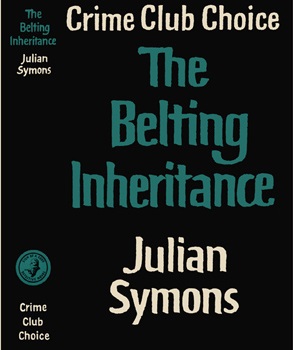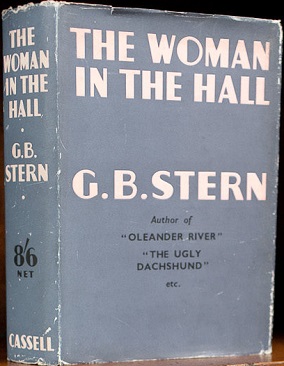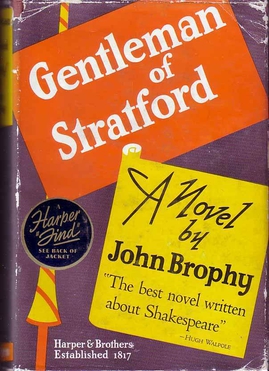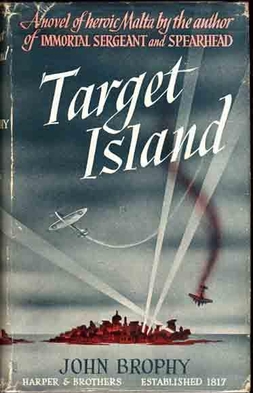 First US edition | |
| Author | Howard Spring |
|---|---|
| Language | English |
| Genre | Drama |
| Publisher | Collins (UK) Viking Books (US) |
Publication date | 1938 |
| Media type | |
My Son, My Son (also titled as O Absalom) is a 1938 novel by the British writer Howard Spring. [1]
 First US edition | |
| Author | Howard Spring |
|---|---|
| Language | English |
| Genre | Drama |
| Publisher | Collins (UK) Viking Books (US) |
Publication date | 1938 |
| Media type | |
My Son, My Son (also titled as O Absalom) is a 1938 novel by the British writer Howard Spring. [1]
In 1940 it was made into an American film My Son, My Son! released by United Artists and starring Madeleine Carroll and Brian Aherne. [2] In 1979 it was again adapted as a BBC television series My Son, My Son .
McDuff, The Talking Dog was a Saturday morning live action television program that aired on NBC in 1976. The show centered on the ghost of a 100-year-old sheepdog who used to live in the home now owned by a veterinarian, Dr. Calvin Campbell. McDuff could talk not only to the other animals, but also to Dr. Campbell. However, Dr. Campbell was the only person who could hear or see McDuff, which often led to wacky situations.

Air Vice Marshal Stanley James (Jimmy) Goble, CBE, DSO, DSC was a senior commander in the Royal Australian Air Force (RAAF). He served three terms as Chief of the Air Staff, alternating with Wing Commander Richard Williams. Goble came to national attention in 1924 when he and fellow RAAF pilot Ivor McIntyre became the first men to circumnavigate Australia by air, journeying 8,450 miles (13,600 km) in a single-engined floatplane.

George Willison (1741–1797) was a Scottish portrait-painter. He is best known for his works done in India.
The Glasgow Evening News was an important Scottish newspaper in the early 20th century. It was founded as the Glasgow Evening Post in 1866 and became the Evening News in 1915.
Road House is a 1934 British comedy crime film directed by Maurice Elvey and starring Violet Loraine, Gordon Harker and Aileen Marson.

Blue Skies is a 1929 American drama film directed by Alfred L. Werker and starring Carmencita Johnson, Freddie Burke Frederick, and Ethel Wales. The film is based on a short story called The Matron's Report by Frederick Hazlitt Brennan. The short story also formed the basis for 1936's Little Miss Nobody.

Time to Remember is a 1962 British crime film directed by Charles Jarrott and starring Yvonne Monlaur, Harry H. Corbett and Robert Rietty.

Benighted is a 1927 novel by the British writer J.B. Priestley. Priestley's second published novel, the story explores the post-First World War disillusionment that Britain felt during the time period. A number of travelers are forced to take shelter at an old Welsh country house during a storm. The book was published in the United States in 1928.

The Belting Inheritance is a 1965 mystery detective novel by the British writer Julian Symons. It is a traditional country house mystery harking back towards the Golden Age of Detective Fiction. It was republished by British Library Publishing in 2018 along with another Symons novel The Colour of Murder.

If the Gods Laugh is a 1925 romantic adventure novel by the British writer and explorer Rosita Forbes. It is set against the backdrop of the Italian colonization of Libya.

King's Mate is a 1928 romantic adventure novel by the British writer and explorer Rosita Forbes. While staying in Morocco a young Englishwoman becomes lost in the desert and is rescued by a mysterious figure known as the White Sheik, who proves to be an Englishman.

The Crowthers of Bankdam is a 1940 historical novel by the British writer Thomas Armstrong. His debut novel, it is a family saga following the fortunes of the Crowther family of Yorkshire mill owners across several generations from 1854. A popular success, it was followed by three sequels collectively known as the Crowther Chronicles.

The Woman in the Hall is a 1939 novel by the British writer Gladys Bronwyn Stern. The lifestyle of a confidence trickster mother has a psychologically disturbing effect on her daughter who she uses as an essential part in her various swindles.

Long Lost Father is a 1933 novel by the British writer Gladys Bronwyn Stern. A woman's long-lost wastrel father comes back into her life after many years absence.

The Day They Robbed the Bank of England is a 1959 crime novel by the British writer John Brophy.

Turn the Key Softly is a 1951 novel by the British writer John Brophy. It follows the lives of three women in the first dozen hours after they are released from prison.

Gentleman of Stratford is a 1939 historical novel by the British writer John Brophy. It is a fictional account of the life of William Shakespeare. Brophy carefully researched the novel to use existing documentary evidence about the playwright. The novel was published in the United States by Harper. It helped launch Brophy's career as a novelist. Author Hugh Walpole described it as "the best biographical novel yet written about Shakespeare".

Immortal Sergeant is a 1942 war novel by the British writer John Brophy. The novel is set during the North African campaign of the Second World War and seen through the eyes of a British corporal fighting across the Libyan desert whose comrade, a sergeant, is killed.

Waterfront is a 1934 crime drama novel by the British writer John Brophy. It is set in his native Liverpool amongst the world of dockworkers.

Target Island is a 1944 war novel by the British writer John Brophy. It was published by Collins in London and Harper in New York. It takes place during the Axis Siege of Malta during the Second World War. While popular, it did not repeat the great success of Brophy's previous novel Immortal Sergeant set during the North African Campaign. John Hampson writing in The Spectator gave it a fairly negative review alongside Vicki Baum's Berlin Hotel and noted "here again are major and minor figures, love-affairs, raids, and alarms, amid the panoply of modern war. And yet nothing has been added to the epic of Malta that we didn't already know. However, its film possibilities will be obvious to the cinema fan". In the event the novel was not adapted for the screen unlike several others of Brophy's work, although much of its settings and themes featured in the 1953 film Malta Story.